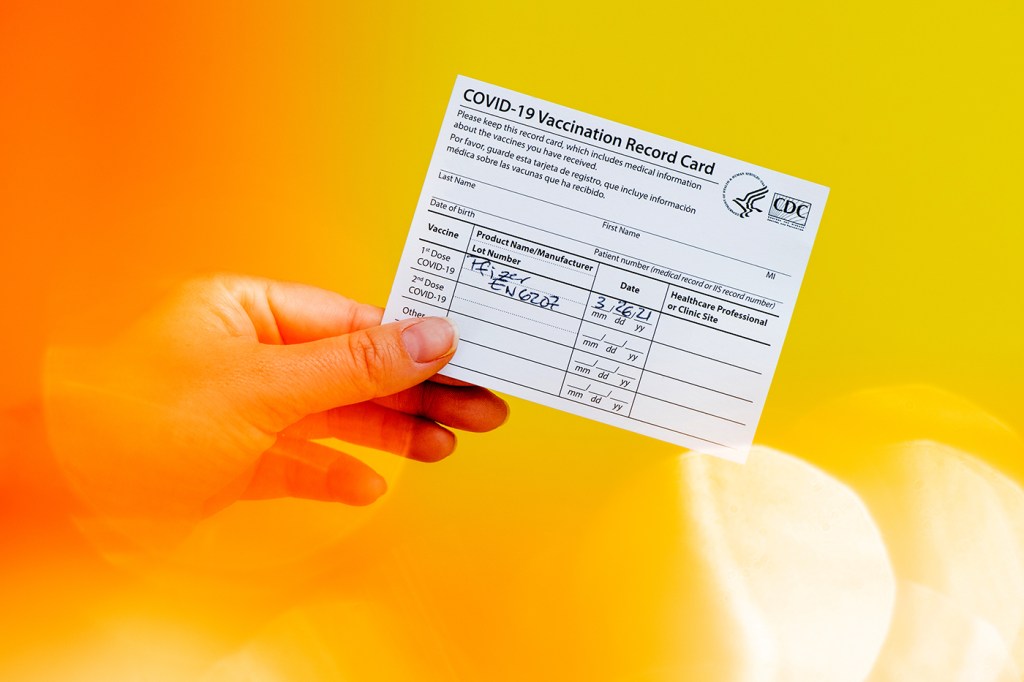The U.S. is developing vaccine passports, but to where exactly?

The Biden administration revealed this week that it would work with industries in the private sector to build out a vaccine credential program that would enable people to prove they’ve been inoculated against COVID-19. Businesses that are struggling to reopen are pushing for the program, also called a vaccine passport, but it faces an uncertain future in the courts, say two Northeastern legal scholars who also worry that such a program could exacerbate existing inequities in the vaccine rollout.
But first, it will be important to clarify what, exactly, a vaccine passport would be used for, says Wendy Parmet, Matthews Distinguished Professor of Law at Northeastern.

Left to right, Aziza Ahmed, law professor. Courtesy photo Wendy Parmet, Matthews distinguished university professor of law. Northeastern University file photo
“This term has been used to mean a lot of different things,” says Parmet, who also leads the Center for Health Policy and Law. “Requiring proof of vaccination to travel is one thing, mandating it for jobs or to attend a university is another, and needing a passport to go into the local Home Depot is yet another.”
Certain countries already require proof of vaccinations against various diseases before travelers can enter. Ghana and Brazil require travelers to be vaccinated against yellow fever. Other countries, such as Afghanistan and Pakistan, require travelers to be inoculated against polio.
One big difference, Parmet says, is that yellow fever and polio vaccines have been approved by the U.S. Food and Drug Administration. The COVID-19 vaccines available in the U.S. have been authorized by the administration for emergency use, but simply haven’t been in use long enough to study the long-term effects.
The FDA may issue emergency-use authorization when the agency’s scientific experts have determined that the known and potential benefits of the vaccine outweigh its known and potential risks, according to information from the agency.
Whether a vaccine that has only emergency-use authorization can be required by a government entity hasn’t been tested by the courts, Parmet says.
“As an ethical and legal matter, it’s somewhat different to require a vaccine that’s fully approved and has been around for a long time such that its efficacy and safety are well established,” she says.
Private companies, on the other hand, are not bound by the same legal requirements as government agencies. However, the language of the emergency-use authorization statute is still unclear about how it applies to private companies, Parmet says.
Additionally, the Americans with Disability Act and the Civil Rights Act provide exemptions for people with disability-related and religious reasons for abstaining from a vaccine, Parmet says. Though they have more leeway than government agencies, private companies must adhere to regulations for such protected classes.
“There would certainly be legal issues with people who will claim exemptions in this country,” she says.
Still a bigger question for Parmet and her colleague Aziza Ahmed, a law professor at Northeastern, is how to ensure that a vaccine passport is equally accessible to everyone in the U.S.
Already, the vaccination rate among white people (19 percent) was more than twice as high as the rate among Hispanic people (9 percent) and close to twice as high as the rate among Black people (11 percent), according to data published in mid-March by the Kaiser Family Foundation, a nonprofit organization focused on national health issues.
“You can immediately see that this will create equity issues,” Ahmed says. “There’s the level of who has access to the vaccines and therefore who can get a passport, but there’s a second, deeper layer of people who are wary of the vaccine because there’s a history of racial inequities in our medical system.”
For example, a recent study published in the Proceedings of the National Academies of Science shows that as recently as 2016, half of white medical trainees believe such myths as Black people have thicker skin or less sensitive nerve endings than white people.
Such systemic inequities may result in a population of people less likely to trust medical institutions, Ahmed says. And that distrust could lead to a hesitancy to receive a COVID-19 vaccine. If activities such as travel, employment, or shopping are restricted to those who can prove they’ve been vaccinated, it would alienate entire groups of people that medical establishments have historically failed.
“A blanket vaccine passport doesn’t seem to take into account the myriad reasons people would choose not to get a vaccine,” she says.
Yet, both Ahmed and Parmet acknowledge the value of a program that restarts the economy while mitigating the spread of infection.
“If you can save the economy safely, that’s another way of saving people’s lives,” Parmet says. “There are just so many different issues at play here that still need to be worked out.”
For media inquiries, please contact Shannon Nargi at s.nargi@northeastern.edu or 617-373-5718.




